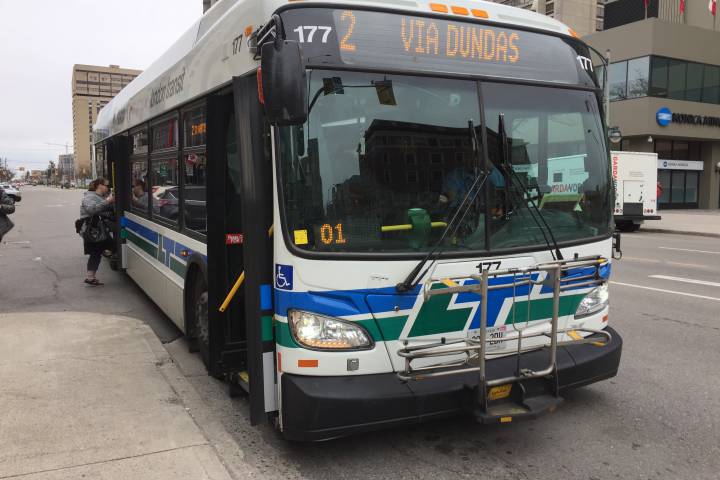The London Transit Commission (LTC) says sticking to a maximum 1.5 per cent budget increase, as city council requested of its boards and commissions, would result in massive service cuts.

LTC general manager Kelly Paleczny believes that to keep costs down, the commission would have to cut 62,000 hours of conventional service at a loss of 1.5 million riders and the equivalent of 40 full-time positions.
As for specialized service, she estimates that would mean a reduction of 38,000 hours or 95,000 fewer rides as well as an increase in what’s called “non-accommodated” trip requests.
“We call ‘non-accommodated’ any trip requests we are unable to accommodate — right now that sits at about four per cent of all trip requests,” Paleczny explained.
“That rate would be projected to go up to 29 per cent if we had to cut that amount of hours out of the service.”
The LTC announced in August that it was projecting a funding shortfall that it said was mainly the result of the cancellation of the planned doubling of the provincial gas tax transfer.

On Thursday, Paleczny told 980 CFPL that cuts made to services in an attempt to address budget issues would have a domino effect.

Get breaking National news
“That would also compound our problem with respect to the provincial gas tax because we would receive about $600,000 less each year going forward given the decline in ridership,” she said.
“All of that, compounded with the fact that we’re moving forward on January 1 with a substantial fare increase. That in and of itself is going to be hard for riders to swallow, but put on top of that, we’re asking riders to pay more for potentially less service given these required cuts.”
Councillor Phil Squire, also a transit commissioner, told 980 CFPL that if the City of London wants to improve transit, it needs to invest in it.
Squire says he’s hoping that both sides can compromise in order to maintain services in a financially responsible way.
“What I’m really concerned about is how are we going to manage this situation? Because if LTC is held to 1.5 per cent — and again, I don’t enjoy this — but you might as well not do the BRT because it won’t work,” he said.
The multi-year municipal budget for 2020-23, which would include the LTC’s budget, is expected to be tabled with council in December.
— with files from 980 CFPL’s Jake Jeffrey.












Comments